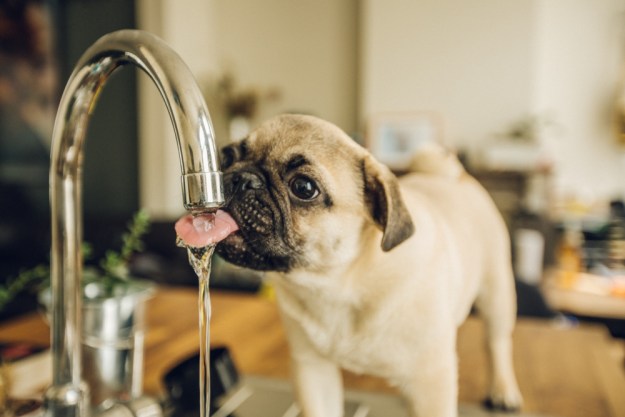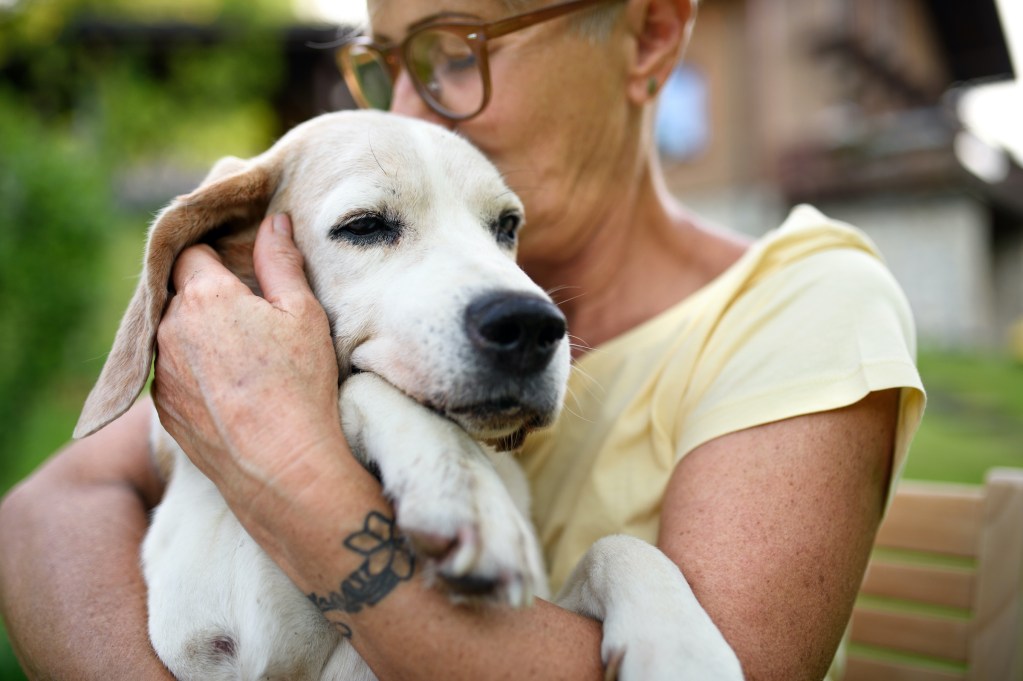
No matter how much we love them, how well we take care of them, or even how carefully we mind them, all dogs reach old age, eventually. You’ll start to notice a few signs of slowing down once they reach senior age (which varies by size and breed). Health conditions like dental problems, arthritis, and hip dysplasia also become more common. While a senior dog’s gray muzzle is adorable, an old dog breathing heavy can be downright terrifying — especially if this symptom comes on suddenly.
Certain breeds — primarily flat-faced dogs like French bulldogs, English bulldogs, and pugs — commonly suffer from breathing problems, but respiratory issues can occur in any breed. We’ll walk you through the reasons your dog could be breathing heavily, what you should do about it, and when you need to contact your vet.

What does it mean when an old dog breathes heavy?
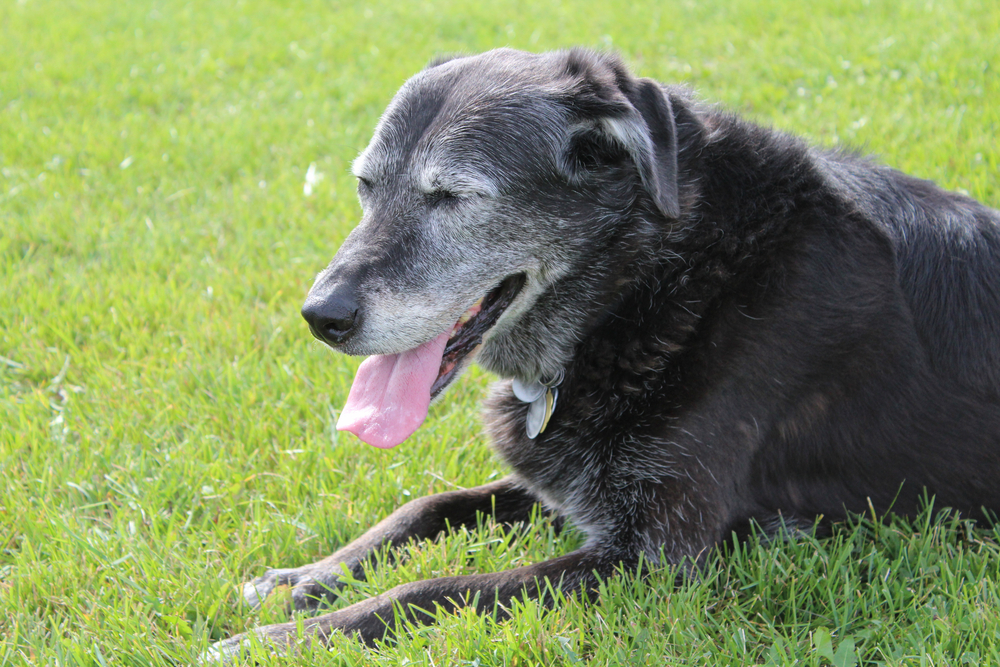
What causes heavy breathing in older dogs?
For the most part, this is nothing to worry about, especially if your pup has just been out for a walk. Dogs can’t sweat the way we can, and panting allows your dog to cool off by evaporating heat and moisture through their respiratory tract. But when there’s no apparent cause for heavy breathing, it’s only natural to be concerned. Here are some of the reasons your old dog may be breathing heavily.
1. Asthma
Common symptoms of asthma in dogs include heavy breathing, rapid panting, coughing, lethargy, loss of appetite, and blue-tinted gums. If your dog suddenly begins exhibiting the aforementioned symptoms, take them to the vet immediately.
2. Anxiety
In addition to panting, dogs suffering from anxiety may exhibit destructive behaviors, urinate or defecate indoors, and show additional signs of distress. While it’s upsetting to see your fur baby feeling so anxious, anxiety isn’t a medical emergency, though we still recommend that you contact your vet.
3. Heart failure
As dogs age, they become more susceptible to age-related diseases. One of the most common is congestive heart failure, often abbreviated as CHF. If your dog has a swollen belly, seems fatigued, experiences a loss of appetite, seems unsettled at bedtime, or becomes exercise intolerant, they may be suffering from heart failure.
4. Medication
Some medications prescribed for health conditions may cause rapid or heavy breathing. One of the worst culprits is prednisone, a steroid frequently prescribed to combat arthritis-related inflammation. Speak to your vet about any potential side effects your dog may experience while taking prescription medications.
5. Metabolic acidosis
Caused by an excess of acidity in the bloodstream, metabolic acidosis can lead to heart problems and mineral loss in your dog’s bones. Heavy breathing, nausea, vomiting, and diarrhea are common symptoms. If left untreated, metabolic acidosis is life-threatening, so take your pup to the vet immediately if they exhibit these symptoms.
6. Obesity
Excess weight puts unnecessary strain on your dog’s heart and respiratory system. Feed your furry friend a nutrient-rich diet, make sure they get plenty of exercise, and be sure to talk to your vet if they have trouble losing weight.
7. Pain
Arthritis is common in older dogs, and its pain can cause labored breathing. If your pup has already been diagnosed with arthritis, giving them a baby aspirin can help relieve the discomfort and calm their breathing.
8. Respiratory problems
Respiratory conditions can run the gamut from the common cold and chronic obstructive pulmonary disorder (also known as COPD). Monitor your dog’s breathing for an hour or two, and if they’re still breathing heavily, it’s time to see the vet.
9. Thyroid problems
Skin conditions, heavy breathing, weight gain, and excess shedding are all symptoms of a condition often found in older dogs — hypothyroidism. Only a vet can properly diagnose your pooch with a thyroid problem and prescribe the necessary medications to control it.
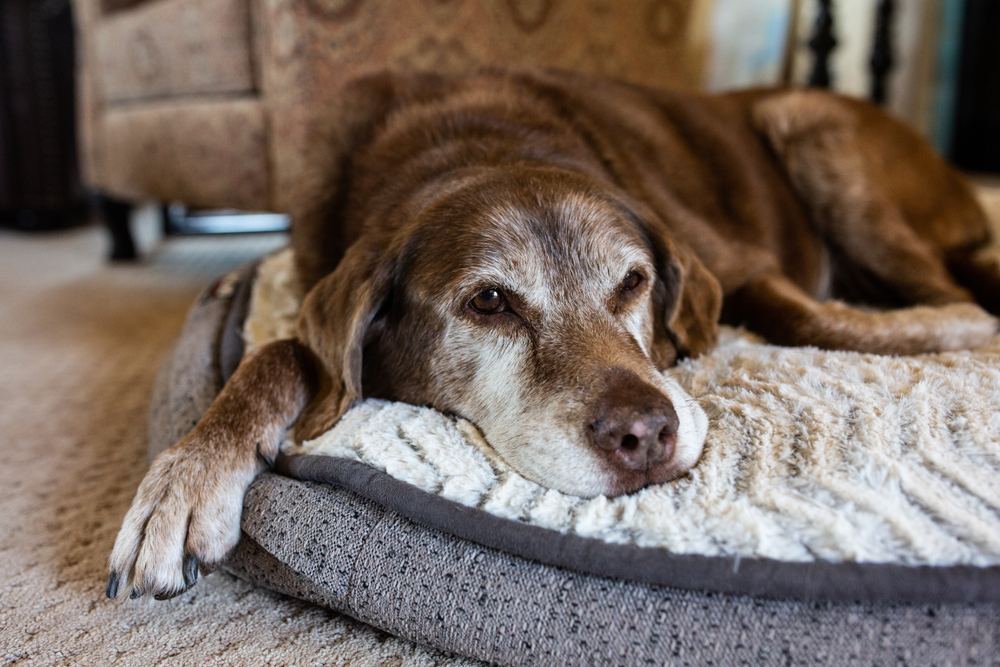
How to tell if your dog is breathing heavily
If your pooch is breathing heavily, it doesn’t automatically mean the problem is in the lungs. Just as with humans, a dog’s respiratory system consists of the lungs, the trachea (commonly known as the windpipe), the throat, the nose, and the mouth. Anything from a blocked nose caused by seasonal allergies to something more serious, like heart disease, can cause labored breathing (also known as dyspnea) or fast breathing (also known as tachypnea).
The average dog breathes at a rate of around 15 to 30 breaths per minute, with slightly lower rates still considered within the normal range. When your dog is calm, set an alarm for 1 minute and count out their breaths. If your pup is taking more than 30 breaths per minute while resting, it’s a sign of tachypnea. It’s no real cause for concern if you’ve just come back from romping in the yard with your pup, but a prolonged average resting breath rate above 30 should be addressed by your veterinarian as quickly as possible.
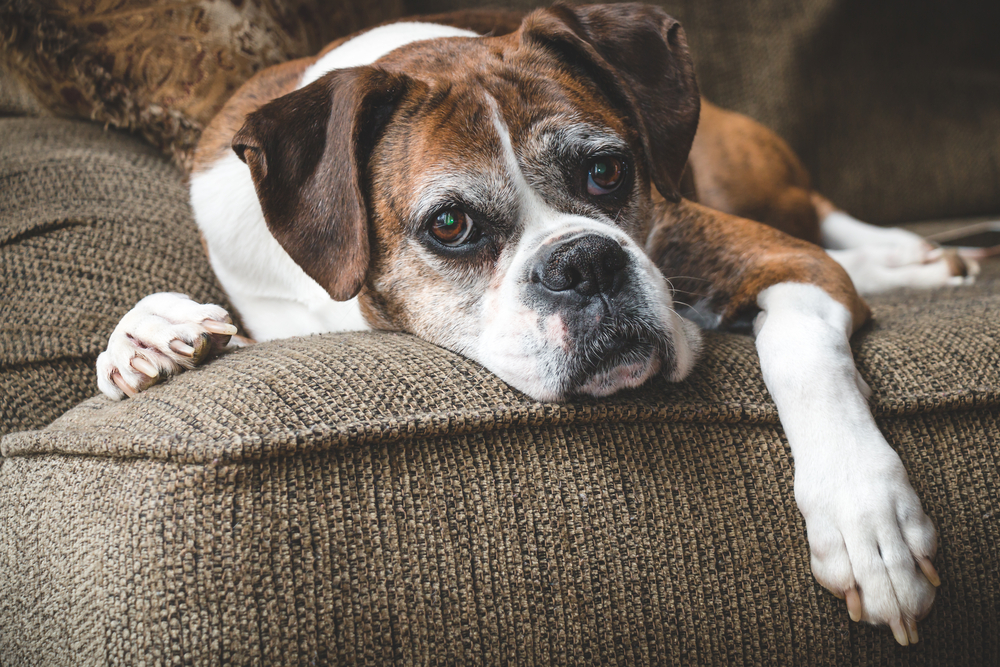
Final thoughts on heavy breathing in dogs
Dogs are beloved members of the family, and we want what’s best for them. While your older pup’s heavy breathing may be due to weight or a sudden heatwave, it’s always better to be safe than sorry. You should take your dog to the vet right away if they appear to be in distress. We recommend a checkup even if heavy breathing is the only symptom they exhibit, but there’s no need to stress if that’s the case.
Editors' Recommendations
- Are ‘dog years’ really 7 human years? How to calculate your dog’s age
- Science says dogs cry tears of happiness when reunited with their humans
- Are Starbucks Puppuccinos bad for dogs? Here’s what veterinarians have to say
- What you need to know about dogs with blue eyes
- How to make a dog poop quickly when dealing with constipation – at-home remedies




